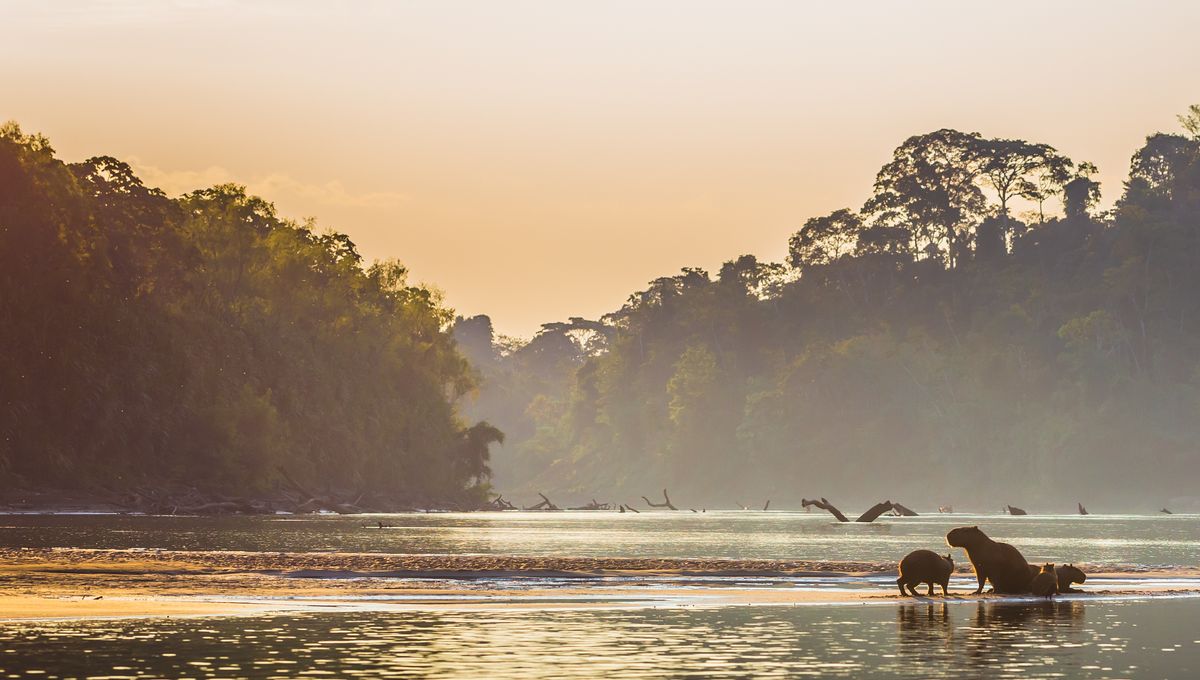
For millions of years, tree species have spread from the Amazon to Atlantic rainforests across a region that’s too arid for them to grow. How exactly they make this challenging journey has been unclear, but now a team of scientists has put forward a new idea: the trees are constantly using the rivers as a hidden “highway”.
ADVERTISEMENT GO AD FREE
The Amazon in the heart of South America and the Atlantic rainforests on the east coast of the continent are separated by hundreds of miles of dry forest and savanna that are too harsh for most rainforest trees to survive. Despite this gap, the two ecosystems share many different species of tree.
It was previously assumed that the trees bridged this gap during historical periods when the region was much wetter and more forgiving to passing trees.
Off the back of new research, a new theory has sprung up: the forests of the Atlantic rainforest are constantly colonized by trees from the Amazon. They do this by growing and spreading along the river, which acts like a hidden “highway” between the two separated ecosystems.
“Rather than tree species being exchanged during specific wetter periods in the past, we found that species have dispersed consistently over time,” Dr James Nicholls, lead study author from the University of Edinburgh and the Royal Botanic Garden Edinburgh (RGBE), said in a statement.
“This probably happens slowly, by generations of trees growing along the ‘highways’ provided by rivers that run through Brazil’s dry ecosystems,” added Dr Nicholls.
The researchers came to this conclusion by studying the genetics of 164 species of Inga tree, which are common in Latin American rainforests. Their DNA was used to reconstruct the “family tree” of the plants (no pun intended) showing the team when each species split from its numerous ancestors and their pattern of movement across the continent.
ADVERTISEMENT GO AD FREE
Researchers identified 16 to 20 instances of species migrating from the Amazon to the Atlantic Forest and successfully taking root. These “dispersal events” unfolded across the evolutionary timeline of Inga, rather than being confined to eras when Brazil was blanketed in humid forest.
Interestingly, they only found one or two examples of tree species moving in the other direction, from the Atlantic forest to the Amazon. This might be because the outflow of tree seeds from the Amazon is so intense it outcompetes the Atlantic forest.
The study highlights how the natural world does not abide by the national borders set by Homo sapiens. These ecosystems are intertwined and deeply connected, frequently spreading between countries with no regard for border checks and passports. This view, the team says, could have huge implications for the conservation of the rainforests in South America and the rest of the world.
“This legal protection – and efforts to preserve these riverside forests – are highly valuable for long-term habitat connectivity,” commented Professor Toby Pennington, study author from Exeter’s Department of Geography and the Global Systems Institute and RGBE.
ADVERTISEMENT GO AD FREE
“The study also tells us something fundamental about the history of the incredible biodiversity of the Atlantic rainforest, which contains about 3,000 more plant species than the Brazilian Amazon. Only 20 percent of the Atlantic rainforest now remains intact. In the short term, we need to protect these precious rainforests. In the long term, our study shows that we must also conserve the connections between them,” added Pennington.
The new study is published in the journal Proceedings of the Royal Society B: Biological Sciences.
Source Link: Tree Species Are Using Rivers To Travel Between Amazon And Atlantic Rainforests